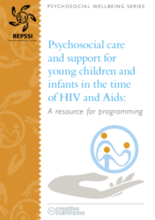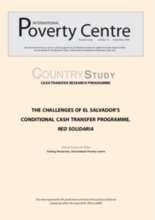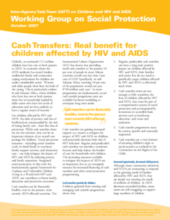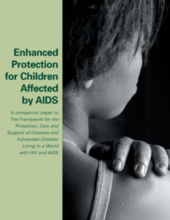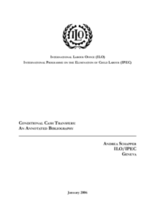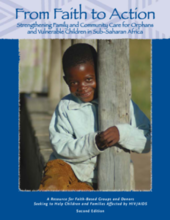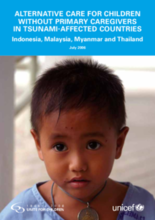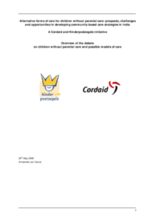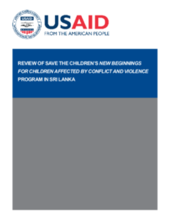Displaying 881 - 890 of 950
Clear programme guidance on psychosocial support, with a special focus on infants and young children. Excellent explanation of psychosocial support models.
Provides analysis of the historical background and current structure of El Salvador's conditional cash transfer programme with attention to family integration
A 4-page advocacy document outlining the potential benefit of cash transfers in the context of children and AIDS.
Outlines how to strengthen social protection, legal protection, and alternative care for children at country level. Contains specific actions that governments and NGO's can take to decrease the vulnerability of children affected by AIDS and respond to instances of abuse, exploitation and neglect.
This document contains a bibliography global conditional cash transfer documents.
A tool to encourage donors to fund community programs that keep children in family care, rather than simply funding orphanages. Describes the many strategies being used to invest in community-based care, and contains specific program examples.
An assessment of alternative care responses for children without primary caregivers in tsunami-affected regions of Malaysia, Myanmar, Indonesia, and Thailand. Includes good practices, recommendations, and detailed country reports.
Detailed examination of debate over institutional and alternative care methods for children without parental care. Includes comprehensive framework for collective action.
Examines a community-based care program for children living with HIV in Haiti called Arc-en-Ciel. Includes an overview of services provided (residential care, home based care, and community mobilization) and lessons learned.
An evaluation of a programme in Sri Lanka that aimed to resettle and reintegrate children affected by armed conflict, prevent and respond to child abuse, and develop community based alternatives to institutional care.

